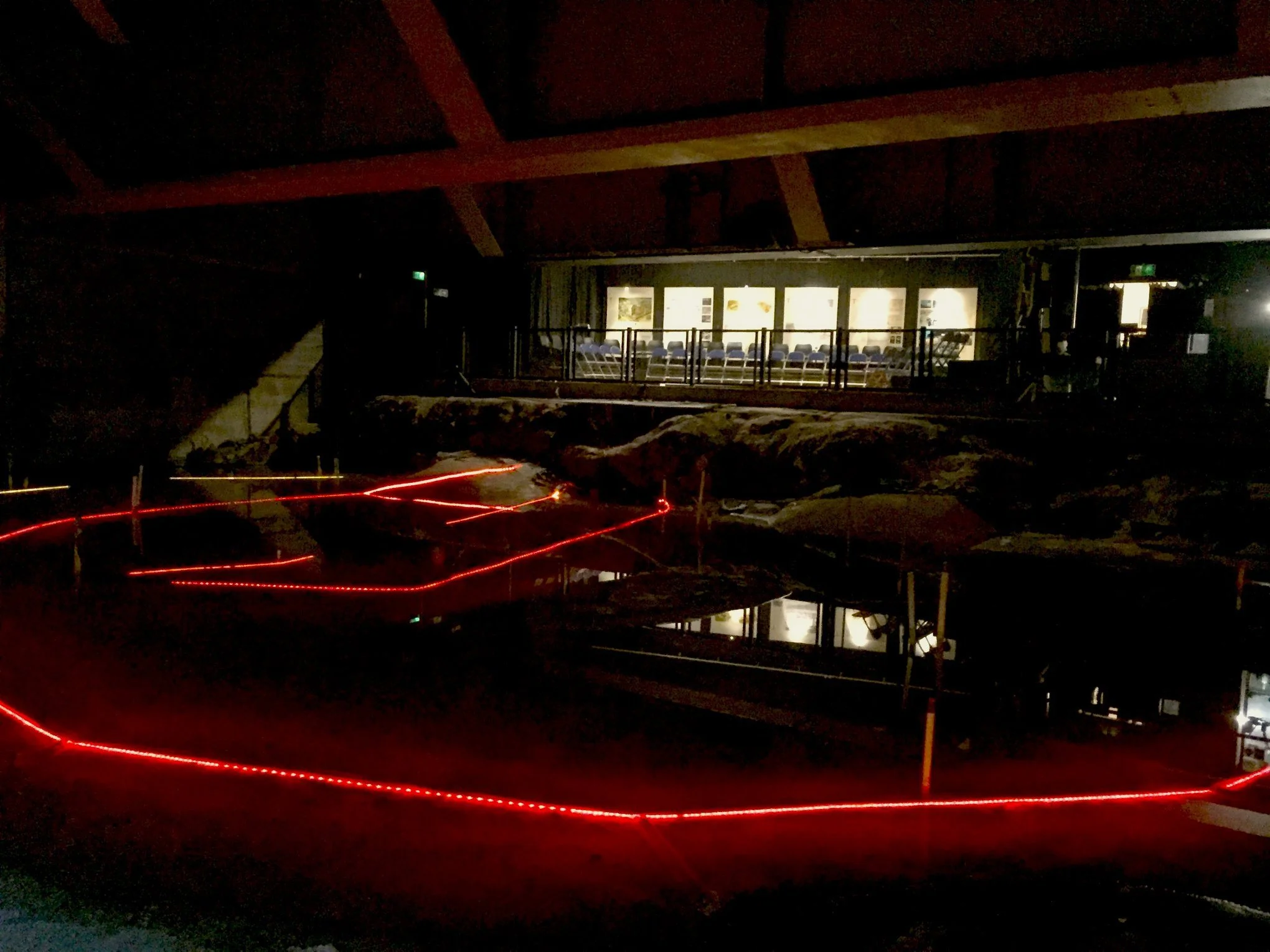The Rose Playhouse
Bankside’s first theatre
About us
What’s on
Learn more
Find us
Contact
The Rose is open on selected dates this August, so why not drop in and see the archaeological site of Bankside’s first theatre?
We have a free digital guide that you can download to your phone to use during your visit, while our new 75 minute Sonic Trail allows you to explore the surrounding area while being immersed in the soundscapes of Elizabethan London.
Our story…
The Rose Playhouse was the first purpose-built professional theatre on Bankside, on the south side of the river Thames in Southwark.
It was the brain-child of Philip Henslowe, a local businessman. In 1585, he leased a garden plot of land called The Little Rose on which he constructed the playhouse. It opened in 1587.
His new theatre was a huge success, attracting such large audiences that Henslowe expanded the playhouse sometime around 1592. This was also the year that Henslowe’s step-daughter, Joan, married the leading actor Edward Alleyn, who became Henslowe’s business-partner as well as The Rose’s star performer.
William Shakespeare’s first tragedy, Titus Andronicus, was written for The Rose, and many of the other major dramatists of the time, like Christopher Marlowe, Thomas Kyd, Thomas Dekker, George Chapman, Thomas Heywood, and Ben Jonson, also wrote for the playhouse before it closed around 1605, when Henslowe’s lease on the land finally came to an end.
But in the space of just twenty years, Henslowe and The Rose had changed the face of English drama, and laid the foundations for theatre as we know it today.
Cut-away illustration of The Rose when it opened in 1587, by William Dudley
The fascinating history of The Rose is remarkably well documented, thanks to the survival of Henslowe’s papers and account book – his ‘Diary’ – but the remains of the playhouse itself were thought to be lost to time.
Then, in 1989, this exceptionally significant piece of Shakespearean and Elizabethan cultural heritage was rediscovered during construction work, to the delight and wonder of the local community, archaeologists, historians, academics, and theatre lovers worldwide.
A hastily-assembled and impassioned campaign to ‘Save The Rose’ was launched, supported by many of the leading lights of British theatre, to try to save the archaeological remains from destruction and ensure their preservation.
The campaign succeeded – the office block that was due to be built on the site was redesigned to allow the preservation of the remains, which are now legally protected as a Scheduled Ancient Monument.
Interior view from the south-west corner of The Rose, looking across the flooded remains up towards the raised viewing platform on the eastern side.
These are the only complete surviving remains of an Elizabethan amphitheatre, and The Rose Theatre Trust has been tasked with pursuing its preservation and restoration for generations to come, to learn from and enjoy.
At the moment, only two thirds of The Rose’s archaeological remains have been excavated. There is now an urgent need to complete this work, and secure and preserve this culturally-rich and truly historic ancient monument.
William Shakespeare
Engraving by Martin Droeshout
from the First Folio of his plays.
Published 1623
The Rose Playhouse is a Scheduled Ancient Monument which celebrates Shakespeare’s genius and the greatest flourishing of drama in the English language.
It is:
… the stage where Marlowe delighted Elizabethan crowds
… the stage where Shakespeare learnt his craft
… and the stage where many of the greatest plays in the English language made history and went on to change the culture of the English-speaking world.
The Rose Revealed
The remains of the playhouse are currently scheduled as an Ancient Monument at Risk.
The first aim of The Rose Theatre Trust is to complete the excavation of the remaining one third of the site that is still waiting to be explored, and then ensure the preservation of all the archaeological remains.
Once that is done, The Rose will then be surrounded by an exhibition, performance space and learning centre called The Rose Revealed. It will celebrate the dramatic creativity of Britain’s first great Elizabethan age, allowing visitors to be immersed in its history on the actual site of the original Rose stage, the cradle of Shakespeare’s genius.
The Rose Revealed is not just ‘A most rare vision’ (A Midsummer Night’s Dream, Act 4 Sc. 1), but a vital mission.
With your support, The Rose Revealed will become the central focus of an Elizabethan cultural quarter on Bankside – joining Southwark Cathedral (which dates from 606), the remains of Winchester Palace, the site of the Clink Prison, Mary Overie Dock and the replica of The Golden Hinde, and the original site of The Globe playhouse, with the reconstruction of Shakespeare’s Globe nearby.
It will be at the heart and centre of this unique part of London, where great drama flowered in the first Elizabethan age, and where drama, music and art have blossomed again, creating an exciting multicultural quarter during the reign of Queen Elizabeth II.
The Rose is at the heart of the first and second Elizabethan cultural quarters.
Be part of history. Be part of bringing The Rose Playhouse back to life.
A message from Dame Judi Dench
“ We must try harder. Here is this extraordinary, unique place that thousands of people will want to see.
We just need this to happen!
We need The Rose to come back to us all, and to be a place that we know that Shakespeare worked in and his actors acted in. ”
A message from Rose Patron Dame Judi Dench (2 mins)
Follow us on social
Sign up to our mailing list
Do you want to be kept up to date with all our latest news?
It’s free, and you can unsubscribe at any time.
Join The Friends of The Rose
One of the best ways to get involved with us is to become a member of The Friends of The Rose.
Benefits of membership include receiving our monthly Friends’ newsletter, members only outings and events, and discounts for performances and events at The Rose, both online and on-site.










